Derms Say Using the Right Moisturizer With Tretinoin Is Key—Here's What They Recommend

If you've ever used a retinoid, you know what a toll it can take on your skin barrier if you're not extra careful. Unfortunately, I had to learn that lesson the hard way. I used tretinoin for years but paired it with the wrong moisturizer, and, well, let's just say I'm still paying the price. Ask any dermatologist, and they'll tell you tretinoin is one of the strongest retinoids available. It's recommended that those with dry, sensitive, or reactive skin use it cautiously and start slow. However, once you start to use tretinoin, you'll likely see some great results.
But repeat after me: Hydration is vital. I'd been using tretinoin for a while when I realized my moisture barrier wasn't in great shape, so I stopped using it to let my skin recover. While I recently reincorporated a gentle retinol into my routine, I'm taking it slow and flooding my sensitive skin with extra hydration via a rich moisturizer.
If you use tretinoin (or are thinking about starting) and need to know what moisturizer to pair with it, I've got you. I asked dermatologists to break down the benefits of tretinoin and share the moisturizer they'd recommend people of each skin type pair with it.
The Best Moisturizers to Use With Tretinoin, at a Glance
- Best Overall: Vanicream Daily Facial Moisturizer
- CeraVe Moisturizing Cream
- Dieux Skin Instant Angel Skin Restoring Moisturizer
- Skinfix Barrier+ Strengthening and Moisturizing Triple Lipid-Peptide Cream
- SkinCeuticals Triple Lipid Restore
What is tretinoin?
Board-certified dermatologist Brendan Camp, MD, gave us the rundown on tretinoin. "Tretinoin is a topical retinoid medication," he says. "While it's first and foremost an acne medication, tretinoin is also used for treating the effects of photoaging, namely fine lines, wrinkles, and dark spots. Tretinoin can increase collagen production over time when used regularly. It also helps normalize skin cell turnover to address texture changes and prevent the formation of blackheads and whiteheads."

Tretinoin vs. Retinol
But there's a difference between regular retinol and tretinoin, according to board-certified dermatologist and Maei MD founder Rebecca Marcus, MD. "Retinol must be converted to retinoic acid to have an effect as opposed to [tretinoin, which is] prescription-strength and exists as retinoic acid [already]," Marcus explains. "Since retinols need to be converted to retinoic acid, they can take longer to have an effect but are often less irritating on the skin. This can make them a little more tolerable than a prescription alternative."
How does tretinoin benefit the skin?
When used correctly, tretinoin can help with everything from uneven texture to acne, fine lines, and dark spots. Those with dry skin, however, might tolerate lotion formulas of tretinoin, such as the prescription brands Altreno and Arazlo, Marcus says. She also suggests slowly working your way up to daily use when using any form of retinoid.
How to Use Tretinoin
"Using tretinoin two or three nights a week is a good idea. Then work up to nightly applications as your skin gets used to it," she says. "Tretinoins—and, in fact, all retinoids—make skin more sun sensitive, so it's more important than ever to remember your daily sunscreen. Retinoids should not be used by pregnant people. They should be applied at night, not during the day, as they are not photostable and therefore their efficacy is decreased by UV rays."
The Best Moisturizers to Use With Tretinoin
1. Best Overall: Vanicream Daily Facial Moisturizer
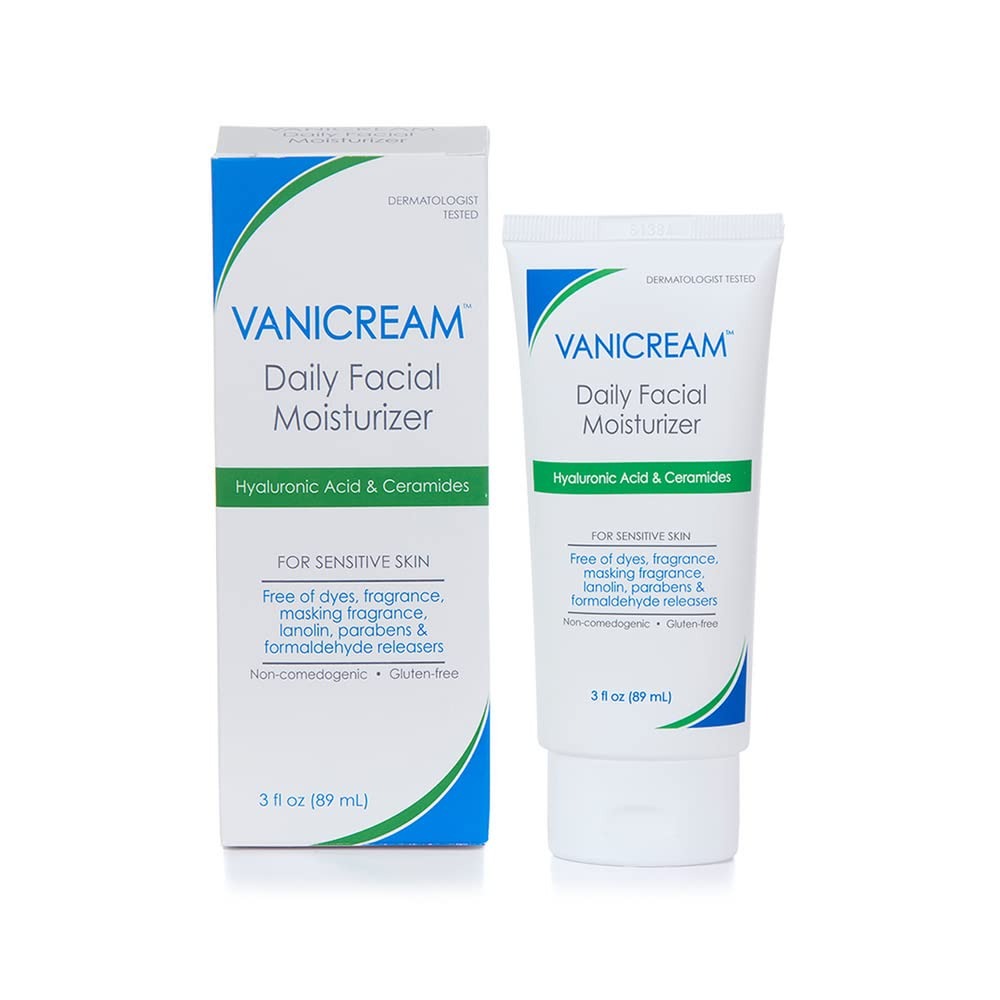
"Vanicream is my go-to recommendation for those experiencing extreme skin sensitivity and reactivity to everything," says Marcus. "It's hypoallergenic, soothing, and gentle enough even for babies." Consider this the gold standard of gentle face creams.
2. CeraVe Moisturizing Cream
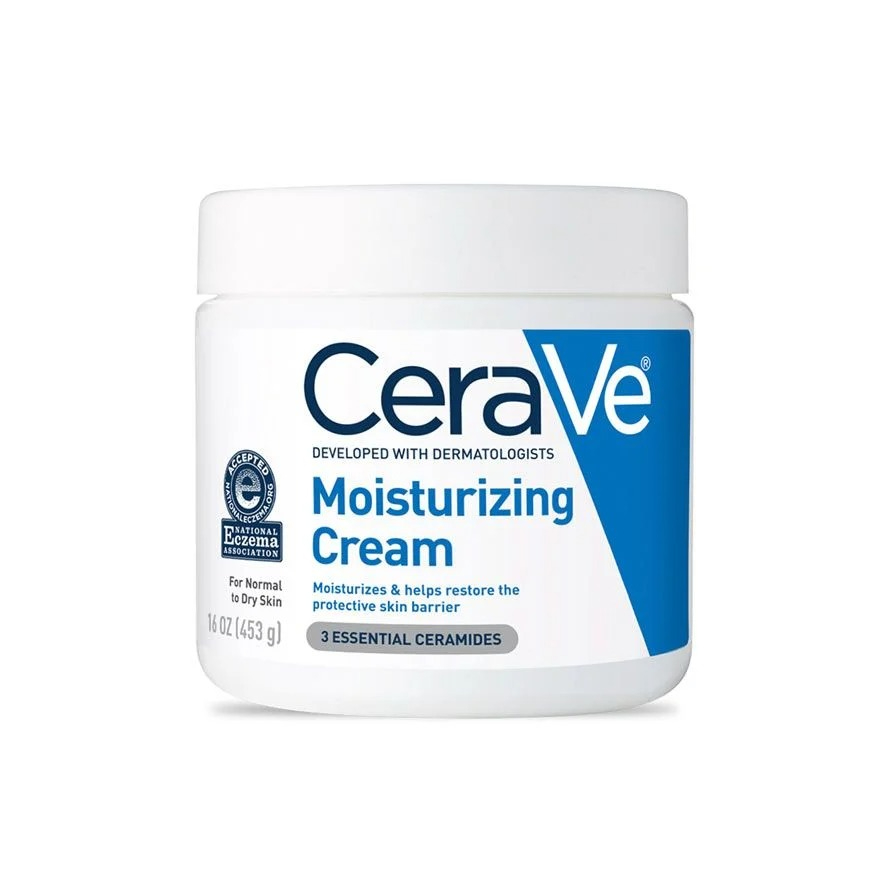
This skin barrier–restoring cream from CeraVe helps lock in essential moisture with ingredients like hyaluronic acid, ceramides, and petrolatum. It's great for mitigating the dryness and irritation that can come with using retinoids. This is a good option for dry skin, but may not work as well if you're dealing with active breakouts as it might be too occlusive.
3. Cetaphil Moisturizing Cream
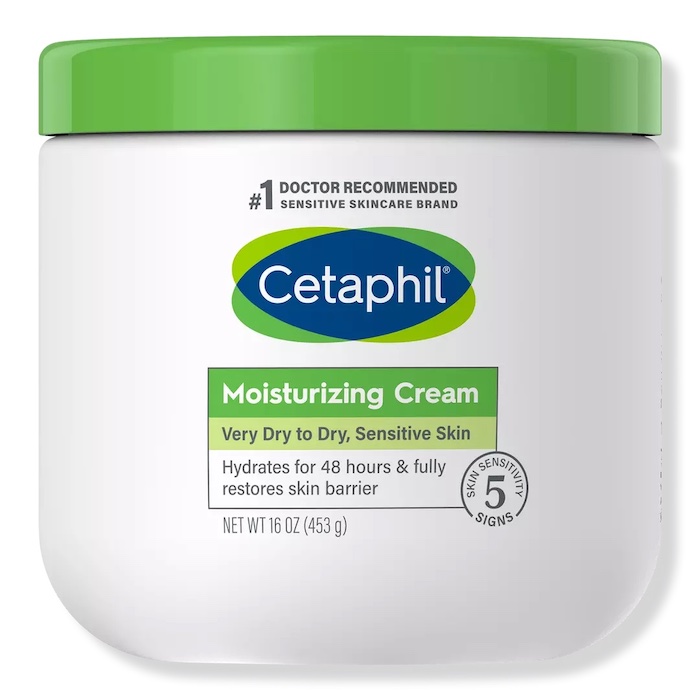
Another great drugstore option is Cetaphil's Moisturizing Cream, which contains a blend of niacinamide, panthenol, and glycerin to help significantly improve moisture levels and barrier function within the skin.
4. Dieux Skin Instant Angel Skin Restoring Moisturizer
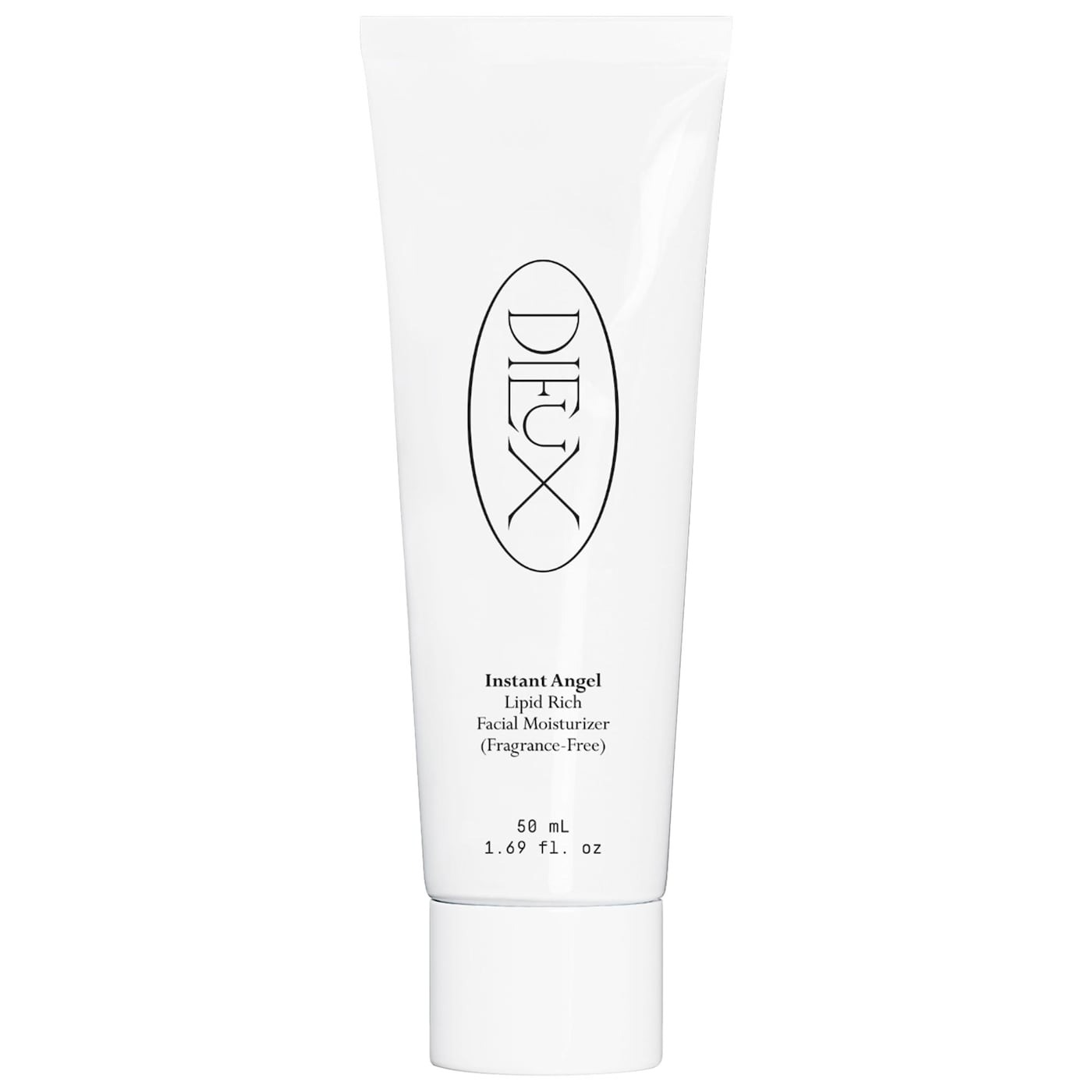
I'm a huge fan of Dieux's Deliverance Serum ($69), but this restoring moisturizer is just as good. It contains everything your skin barrier needs to heal, protect, and stay hydrated. Phytosterols, fatty acids, peptides, ceramides, and squalane help keep skin strong, resilient, and hydrated when using things like tretinoin.
5. Glow Recipe Plum Plump Moisturizer
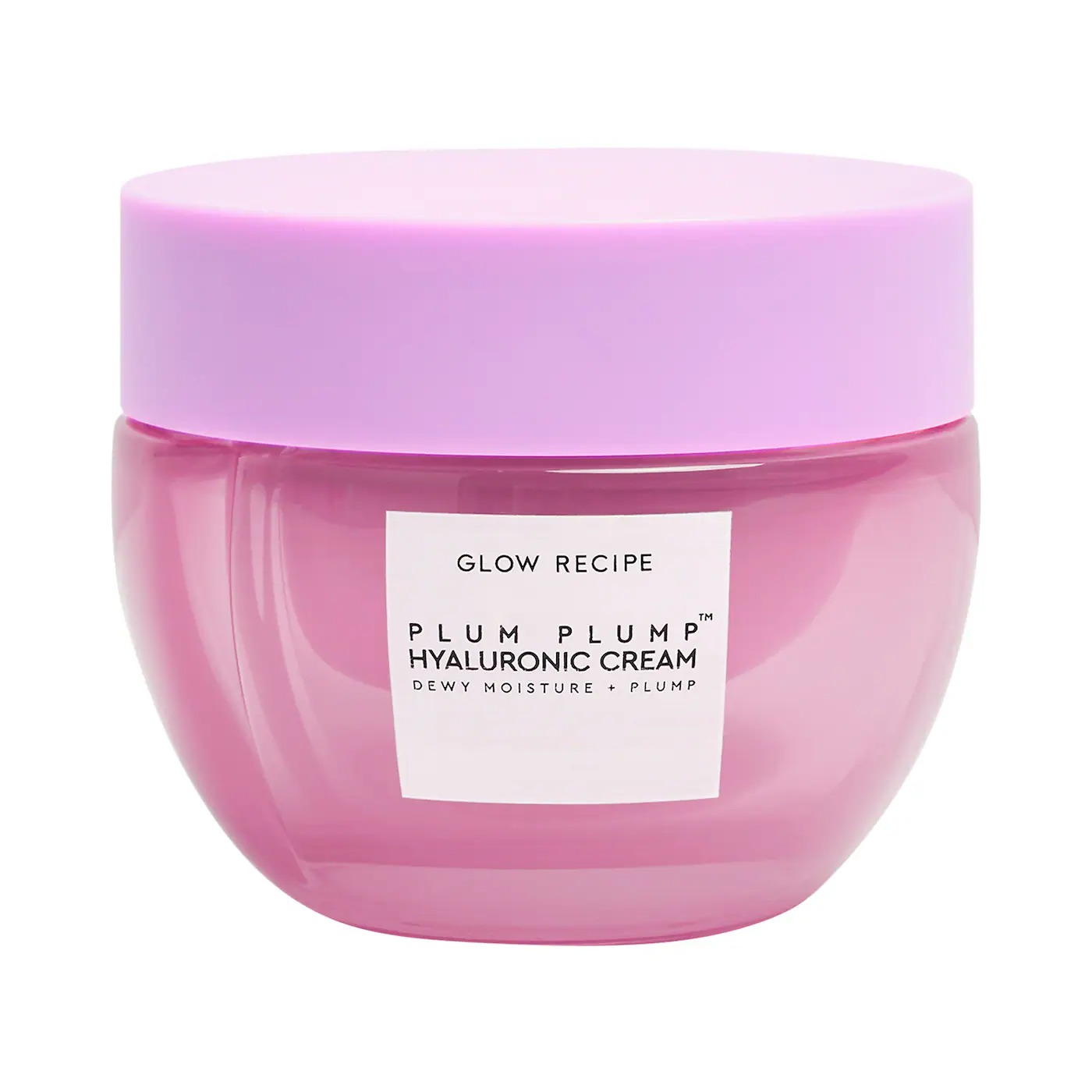
This hyaluronic acid–rich moisturizer from Glow Recipe brightens and balances skin with plum, willow herb, and polyglutamic acid, a hydrating peptide. It's a great option for all skin types since the formula is noncomedogenic. It won't clog pores but can provide acne-prone skin with the rich moisture it needs when it's also being treated with a retinoid.
6. Skinfix Barrier+ Strengthening and Moisturizing Triple Lipid-Peptide Cream
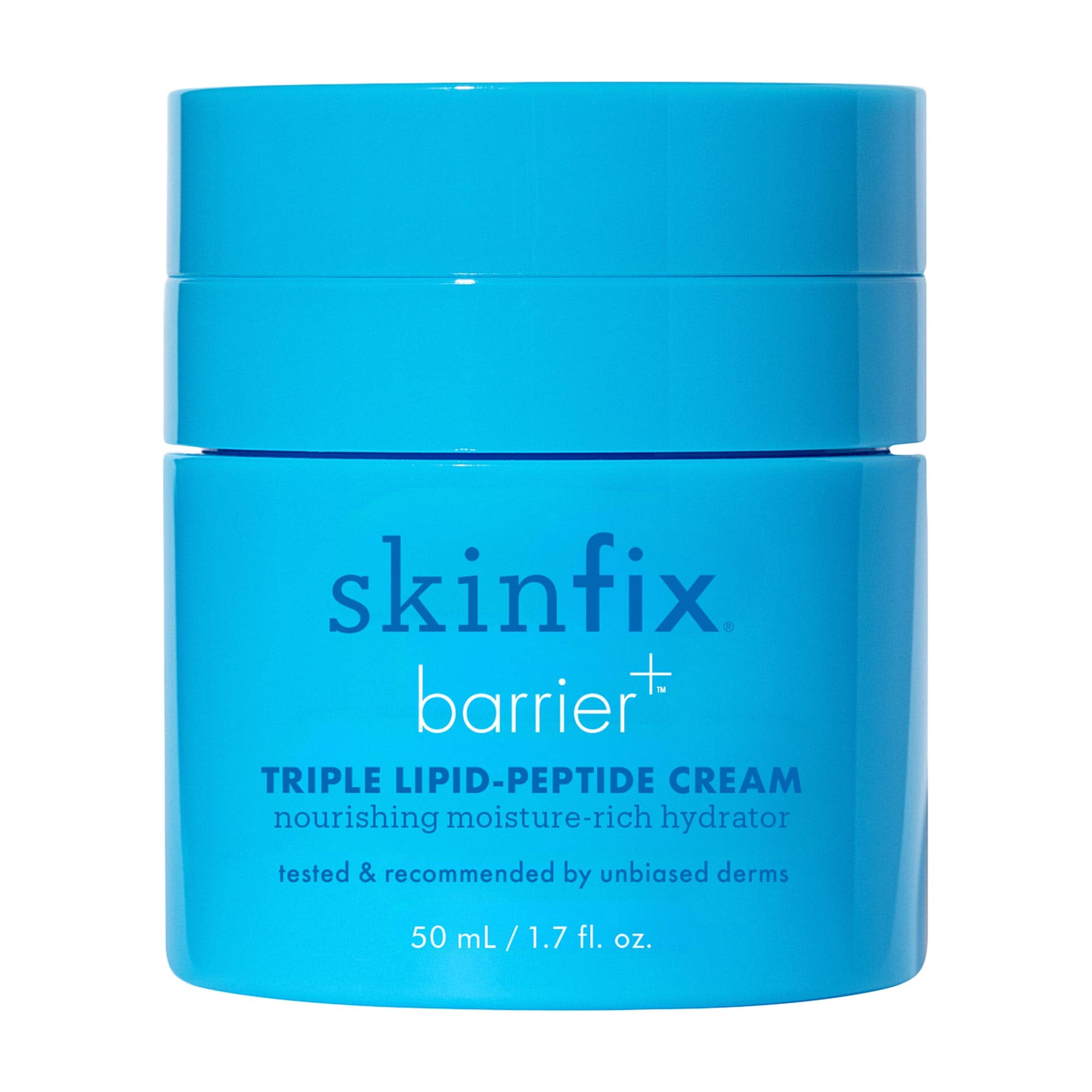
If you have extremely dry skin but want to incorporate tretinoin into your routine, you'll definitely want to combat irritation with this rich cream from Skinfix. It contains active lipids, peptides, small-particle hyaluronic acid, and shea butter to coat the skin in soothing moisture.
7. Biossance Squalane + Omega Repair Deep Hydration Moisturizer
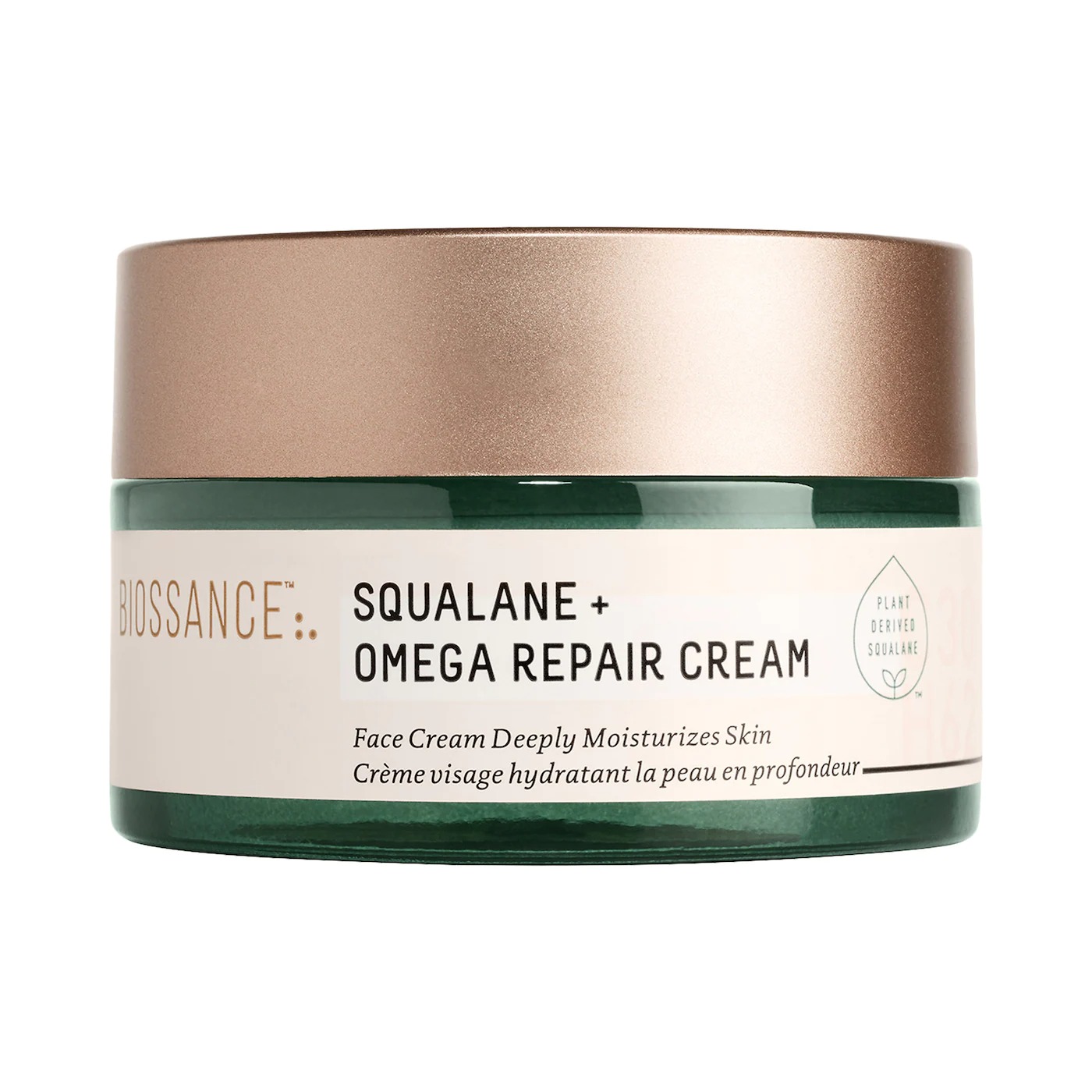
The Boissance Squalane + Omega Moisturizer strengthens and repairs the skin barrier with ceramides, fatty acids, squalane, and hyaluronic acid. It's great for combatting the flakiness, dryness, and irritation that can happen if you're a first-time tretinoin user.
8. SkinCeuticals Triple Lipid Restore
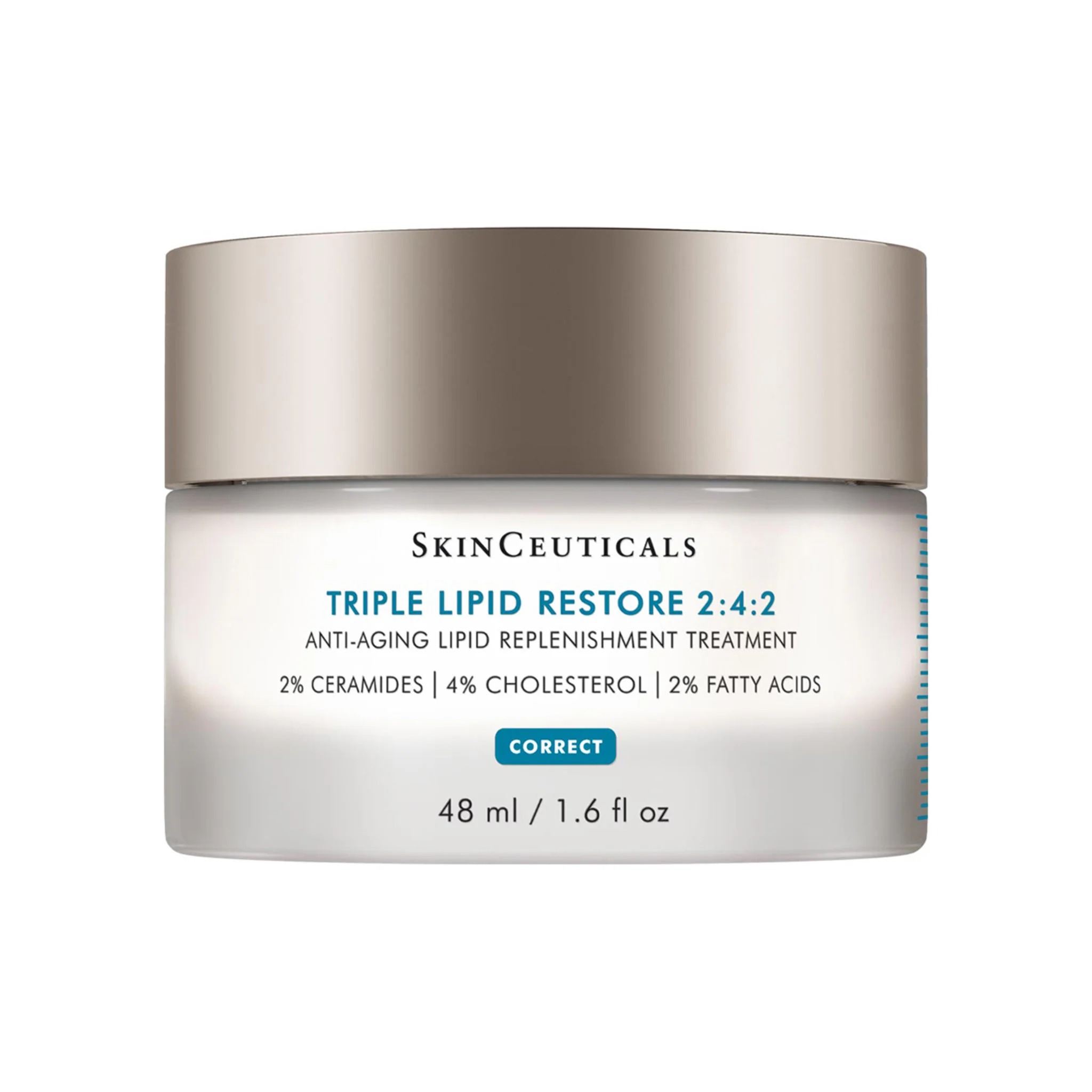
If your barrier isn't in great shape or you have extra-dry, mature skin, SkinCeuticals' heavy-duty moisturizer is the one to use. Although it is rich in lipids, cholesterol, and fatty acids, it can also be used on acne-prone skin, as it contains zero pore-clogging ingredients.
9. Saturday Skin Waterfall Glacier Water Cream
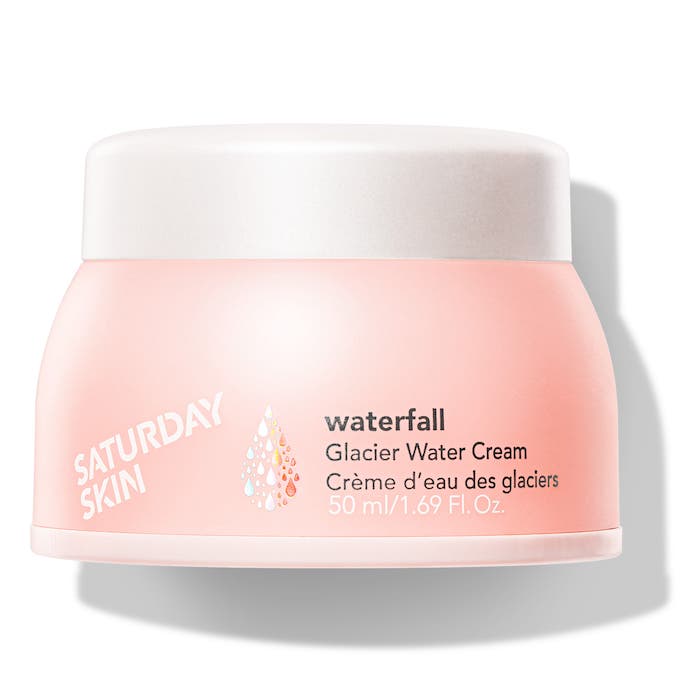
Since tretinoin can cause irritation, it's important to soothe your skin when possible. This moisturizer does just that. It's formulated with Alaska glacier water and Iceland moss to reduce redness and calm the skin.
10. Testament Beauty Damascena Rose De-Stress Moisturizer
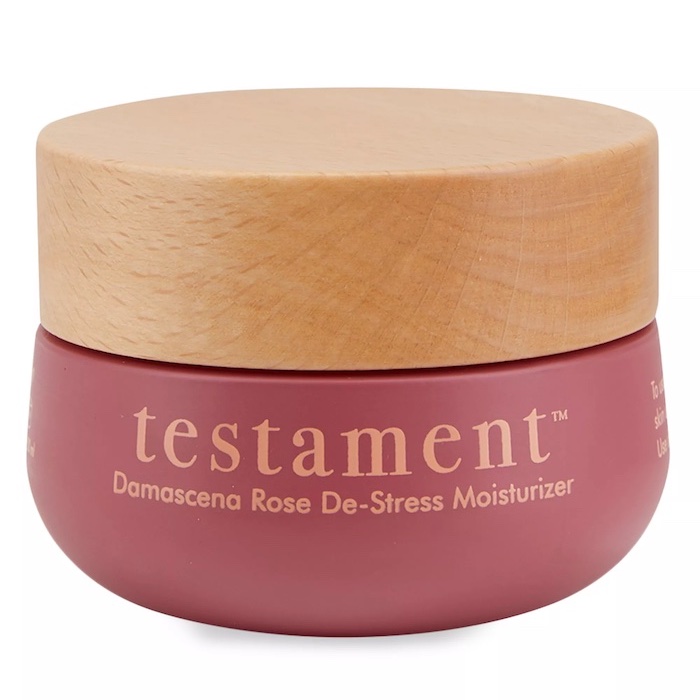
This moisturizer has a super-lightweight, cooling texture, so it's basically a tall glass of water for parched skin. Ingredients like Damascena rose, chamomile extract, and probiotics make the skin feel bright, smooth, energized, and radiant.
11. Fresh Rose & Hyaluronic Acid Deep Hydration Moisturizer

Another rose-infused moisturizer, this one boosts skin hydration up to 72 hours. It uses Damask rose and a duo of hyaluronic acids to deliver multi-level hydration.
This article was published at an earlier date and has since been updated.
Shawna Hudson is a beauty, wellness, lifestyle, and travel writer with over 10 years of experience. She graduated from California State University, Fullerton, with a degree in journalism and has written for other publications such as Bustle, The Zoe Report, Byrdie, Elite Daily, and more. She is currently a beauty writer at Who What Wear and hopes to continue feeding her (completely out-of-control) beauty obsession as long as she can. Stay up to date on her latest finds on Instagram @shawnasimonee.
-
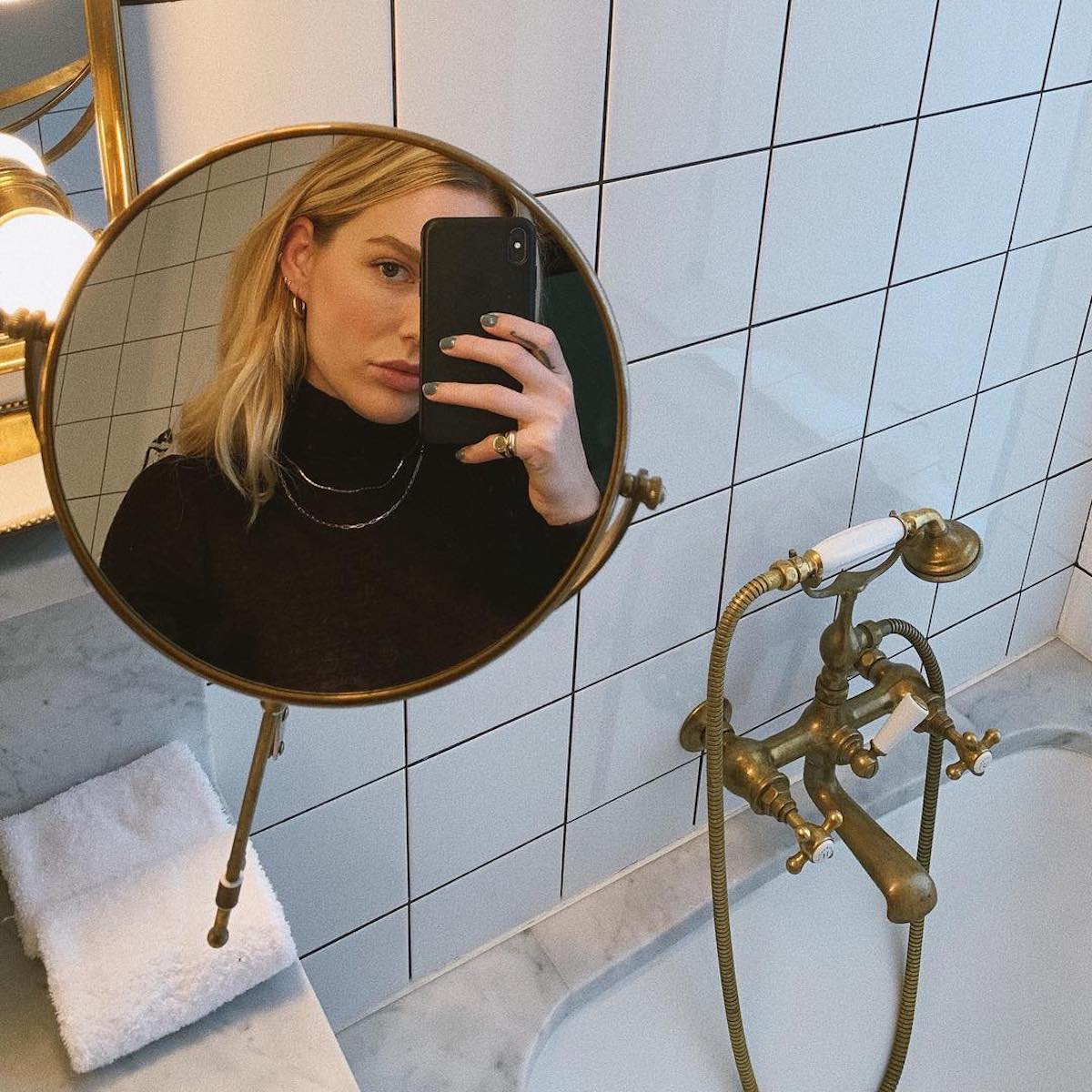 Dry Skin and Damaged Hair? Hard Water Could Be the Culprit—Here's What to Do About It
Dry Skin and Damaged Hair? Hard Water Could Be the Culprit—Here's What to Do About ItTwo dermatologists and a trichologist agree.
By Kaitlyn McLintock
-
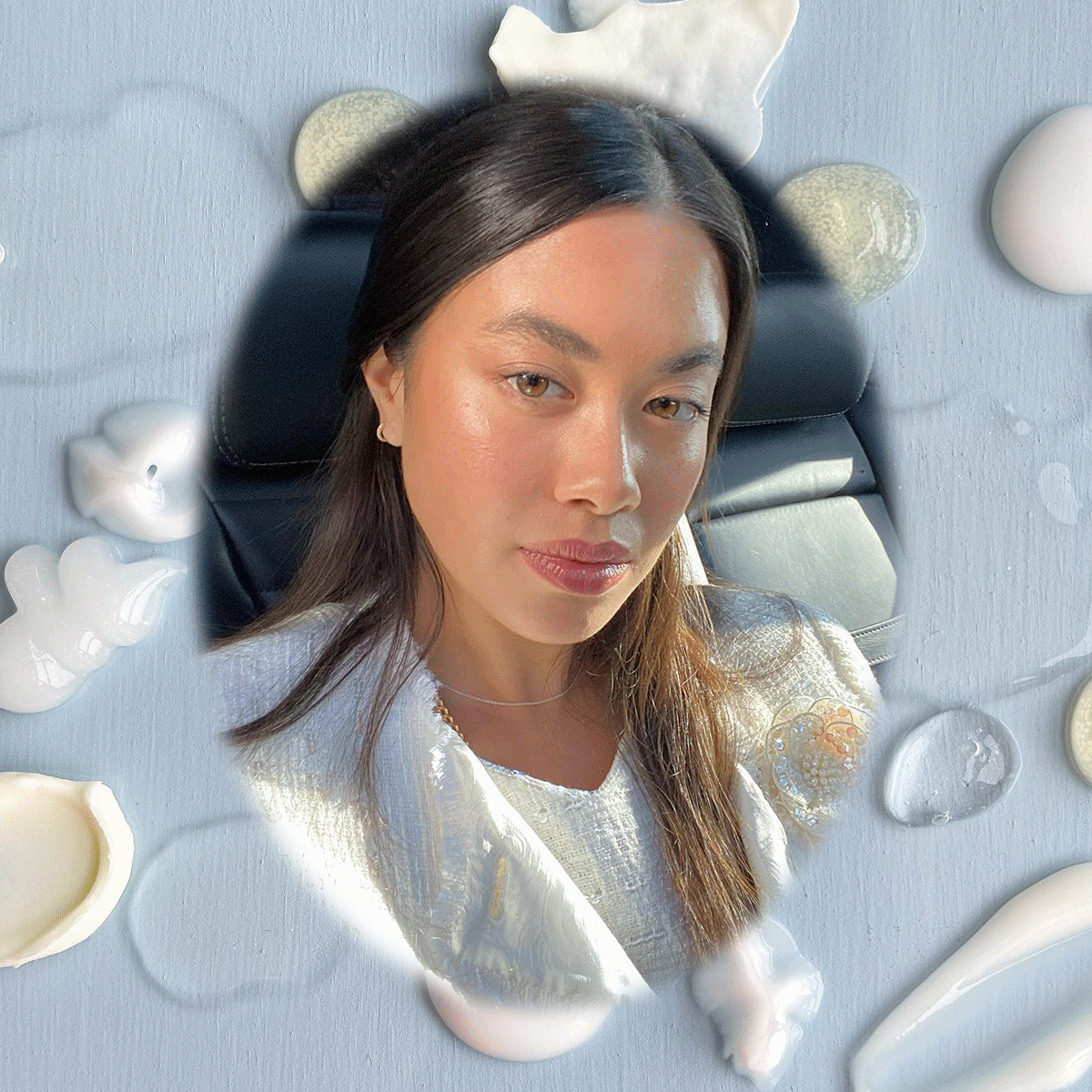 Derms Say This Is the Ultimate "Glass Skin" Ingredient, and You've Probably Never Heard of It
Derms Say This Is the Ultimate "Glass Skin" Ingredient, and You've Probably Never Heard of ItHere's the 411.
By Kaitlyn McLintock
-
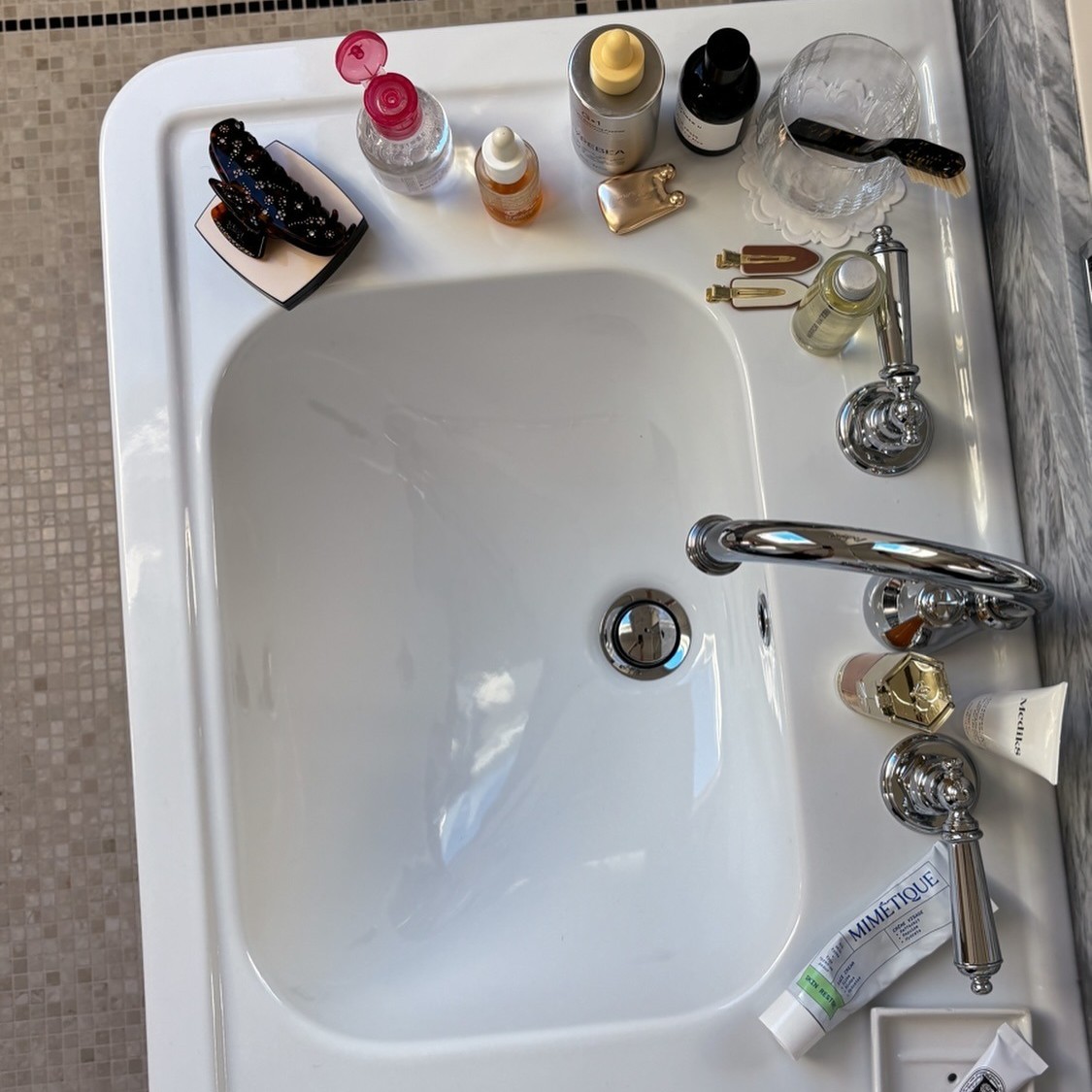 Derms and Beauty Editors (Hi, It's Me) Swear By This Straight-From-Nature Skin Hero That's DIY Mask–Approved
Derms and Beauty Editors (Hi, It's Me) Swear By This Straight-From-Nature Skin Hero That's DIY Mask–ApprovedThis is your sign to start slathering it on.
By Jamie Schneider
-
 My Sister and I Have Opposite Skin Types, But These Products *Magically* Work for Both of Us
My Sister and I Have Opposite Skin Types, But These Products *Magically* Work for Both of UsThese are our "unicorn" products.
By Kaitlyn McLintock
-
 Hailey Bieber Says She "Couldn't Live Without" This $12 French Pharmacy Cream
Hailey Bieber Says She "Couldn't Live Without" This $12 French Pharmacy CreamThat's it—I'm buying three.
By Kaitlyn McLintock
-
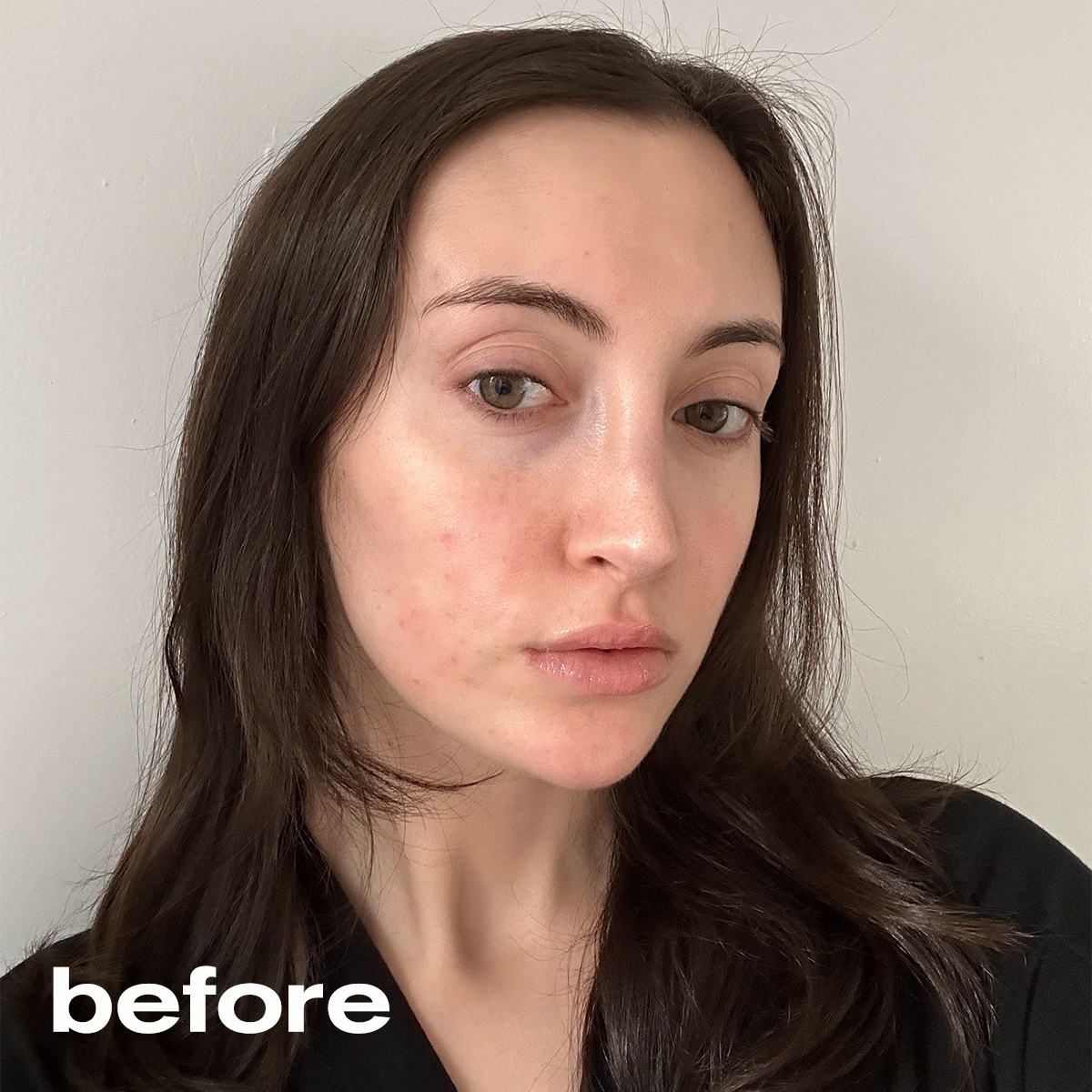 Chic Londoners Love This Ultra-Light Moisturizer, and No Lie, It Saved My Angry Winter Skin
Chic Londoners Love This Ultra-Light Moisturizer, and No Lie, It Saved My Angry Winter SkinIts key ingredient changed everything.
By Alyssa Brascia
-
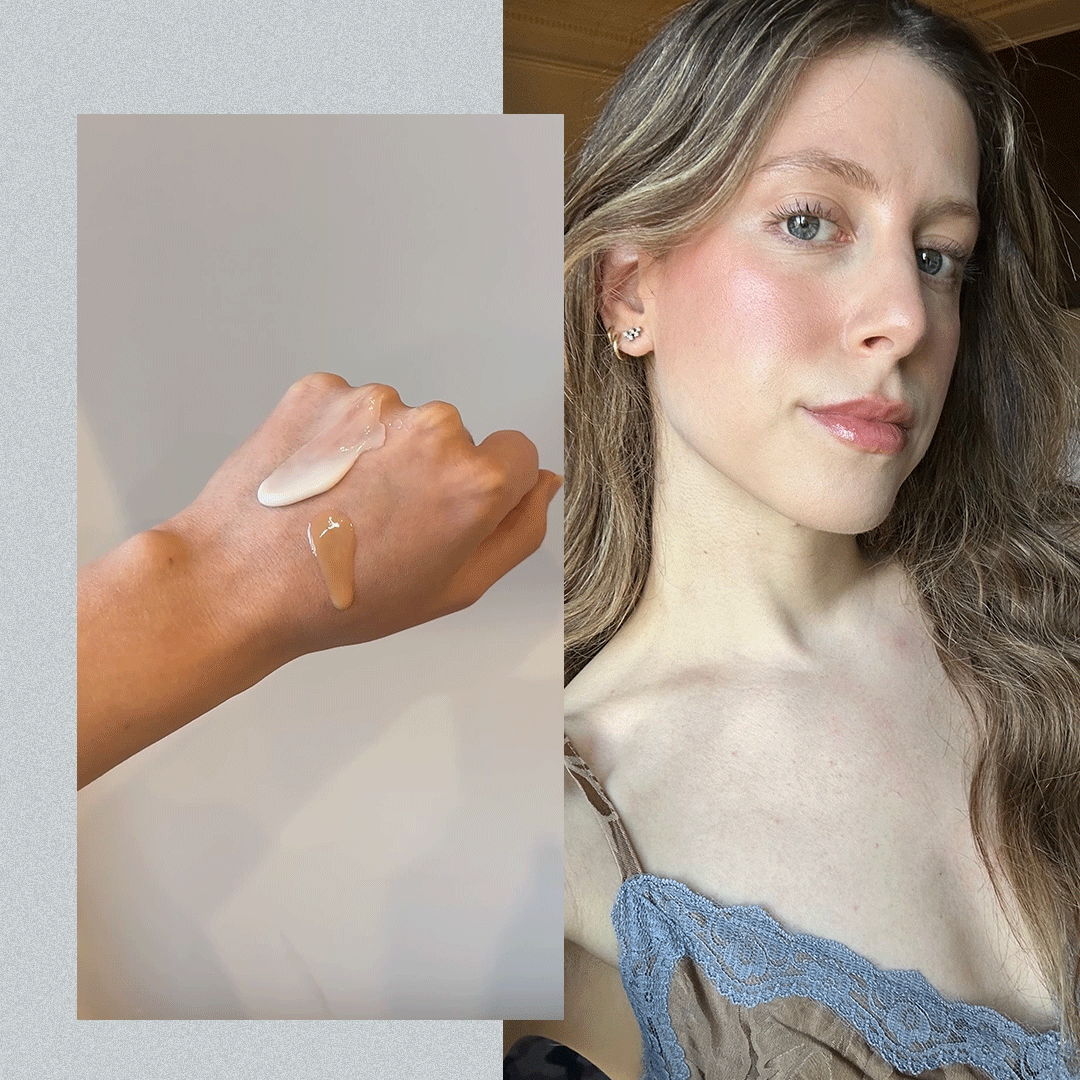 I Traveled 3635 Miles to Learn How to Get Rid of My Dark Spots—5 Game-Changing Tips
I Traveled 3635 Miles to Learn How to Get Rid of My Dark Spots—5 Game-Changing TipsHow far would you go for clear, smooth skin?
By Jamie Schneider
-
 A Derm Just Told Me This Under-Hyped Ingredient Can Replace My Growth Factor and Exosome Serums
A Derm Just Told Me This Under-Hyped Ingredient Can Replace My Growth Factor and Exosome SerumsIt truly does it all.
By Shawna Hudson

